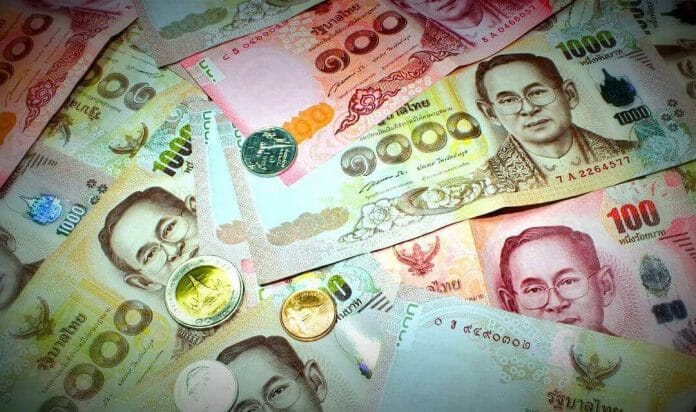Asian emerging markets trickled back to life on Wednesday (Jan 25), after the Lunar New Year holiday, with the Thai baht dipping ahead of a central bank policy rate decision, while Singapore shares hit a near nine-month high ahead of inflation data.
The baht fell 0.3% despite expectations the Bank of Thailand will hike rates by another 25 basis points (bps) later in the day to curb elevated inflation.
The baht has appreciated by 5.3% against the dollar so far this year, becoming Asia’s best performing currency, driven by a weaker dollar and China’s earlier-than-expected reopening.
Foreign visitors to the country surged last year from a year ago, with the country’s vital tourism sector set for a further boost from a recently approved US$120 million (RM512.70 million) budget.
The dollar index continued to weaken from the earlier session, after data showed US business activity shrank for a seventh straight month. Markets expect a 25 bps rate hike from the US Federal Reserve in February, Reuters reported.
Most regional markets resumed trading after a holiday-extended weekend, though China, Taiwan and Hong Kong remained shut.
The ringgit rose 0.3%, the South Korean won firmed 0.2%, and the Indian rupee was up as much as 0.3%.
China’s abrupt dismantling of its strict Covid-19 measures has driven a recovery in risk appetite in Asia in the recent weeks, with Thailand, Singapore and Malaysia emerging as the top beneficiaries.
Singapore’s dollar rose 0.2%. Analysts at Maybank expect the medium-term outlook for the currency to be underpinned by potential tightening move by the central bank and China’s reopening.
The country’s budget on Feb 14 will be parsed for hints on the government’s medium-term priorities for the Singapore economy, Maybank added.
Singapore’s core inflation rate — which excludes private road transport and accommodation costs — was 5.1% in December, unchanged from the same pace in November but slightly higher than forecast.
Indonesia’s rupiah slipped 0.5%, reversing a sharp 1.2% jump a day earlier. The country’s central bank last week signalled an early end to its tightening cycle.
Asian equities rose even as the extended market closure in China capped volumes. MSCI’s broadest index of Asia-Pacific shares outside Japan advanced 0.4% to a seven-month high.
Singapore’s Straits Times index jumped 1.8% to its highest since May 5, and Seoul shares climbed 1.4%.
Philippines stock rose 0.3% after a delayed opening on Wednesday because of a technical issue, the bourse operator said.
Indian shares fell 0.9%, Jakarta stocks were down 0.4%, and Malaysian shares declined 0.3%.
Regional highlights include: Indonesia’s foreign direct investment surged 44.2% on a yearly basis in 2022, the investment minister said on Tuesday, noting that 2023 would be a more difficult year to attract investments and Thailand’s exports contracted more than expected in December, and only modest growth was expected for 2023, with a strong baht currency hurting trade competitiveness, the Commerce Ministry said.









